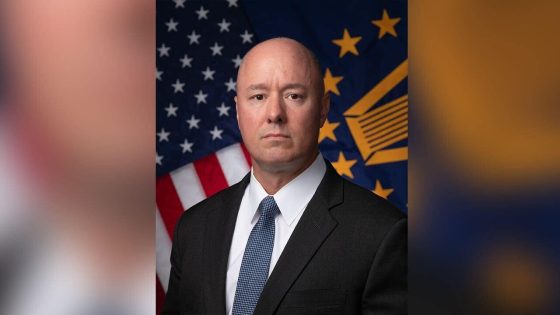CONCORD, New Hampshire (AP) — A New Hampshire man charged with threatening the lives of presidential candidates last year has been found dead while a jury was deciding his verdict, according to court filings Thursday.
The jury began weighing the case against Tyler Anderson, 30, of Dover on Tuesday after a trial that began Monday. A message seeking comment from Anderson’s lawyer was not immediately returned. A court filing said “the government has learned that the defendant is deceased.” Prosecutors have moved to dismiss the indictment having learned Anderson has died.
Anderson was indicted by a federal grand jury in December on three counts of sending a threat using interstate commerce. Each charge provides for a sentence of up to five years in prison, up to three years of supervised release, and a fine of up to $250,000.
The U.S. Attorney’s office did not name the candidates. When Anderson was arrested, a spokesperson for Republican candidate Vivek Ramaswamy said that texts were directed at his campaign.
Anderson was arrested on Dec. 9 and was released Dec. 14. A federal judge set forth several conditions for his release, including that he avoid contact with any presidential candidate and their political campaigns.
Anderson, who was receiving mental health treatment, was also ordered to take all of his prescribed medications.
According to court documents, Anderson received a text message from the candidate’s campaign notifying him of a breakfast event in Portsmouth. The campaign staff received two text messages in response. One threatened to shoot the candidate in the head, and the other threatened to kill everyone at the event and desecrate their corpses.
A court document filed when Anderson was arrested included a screenshot of texts from Dec. 6 threatening a mass shooting in response to an invitation to see a candidate “who isn’t afraid to tell it like it is.” Republican Chris Christie called his events “Tell it Like It Is Town Halls.”
A spokesperson for the Christie campaign had thanked law enforcement officials for addressing those threats.
The U.S. Department of Justice doesn’t name victims out of respect for their privacy and our obligations under the Crime Victims Rights Act, a DOJ spokesperson said.
Anderson had told the FBI in an interview that he had sent similar texts to “multiple other campaigns,” according to a court document.
The charges say similar texts were sent to two different candidates before the Ramaswamy messages, on Nov. 22 and Dec. 6.
Source Agencies


